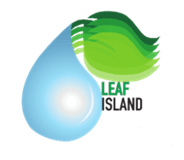Archive
Research, Articles & Publications by Leaf Island
WBAI 99.5fm Eco-Logic Radio interviews Leaf Island
June 25, 2021 | Green Technology, Green Roofs, Built Environment
Why Cities Need Green Roofs - Interview w/ Leaf Island
WBAI 99.5fm Eco-Logic Radio hosts Ken Gale and Donna Stein interview Leaf Island co-founders: Joshua Harrison, Dr. Paul Mankiewicz, and Michael Fishman on the potential of green roofs to improve the energy efficiency of buildings, fight climate change, reduce the Urban Heat Island Effect, create biodiversity corridors and improve the overall quality-of-life for urban residents.
Re:Evolution of Cities: Ecology is the Future of Infrastructure
March 26, 2021 | Green Technology, Built Environment, Circular City Week
Presented by Leaf Island on March 26th, 2021 for NY Circular City Week hosted by the Danish Cleantech Hub.
In 2019, the Leaf Island Team (formerly known as Gaia Technologies) won the NY Access Cities Open Innovation Call for solutions to the Urban Heat Island Effect and Air Pollution for our unique approach to greening urban centers. Instead of rebuilding cities from scratch using brand new technologies, Leaf Island posits that the greatest economic, social and ecological benefit will be achieved by taking advantage of the high surface area of cities and retrofitting existing urban surfaces with layered vegetation at the right scale, thus allowing Nature to do the work for us. They will quantifiably demonstrate the scale required to realize these ecological goals, and its implications on urban life, commerce, economics and the waste stream through a 45-minute presentation and 15-minute+ Q&A session.
Panelists:
Dr. Paul Mankiewicz, Co-Founder and Ecological Engineer at Leaf Island
Michael Fishman, Co-Founder of Leaf Island, Principal of City Planning at Mott MacDonald
Phoebe Mankiewicz, Head of Research of Leaf Island, Interdisciplinary Scientist, PhD student at Yale University
Joshua Harrison, Co-Founder of Leaf Island, Co-Director of the Center for the Study of the Force Majeure, UC Santa Cruz
Igor Bronz, Co-Founder of Leaf Island, Geotechnical Engineer & Hydrologist

The Evolution of Cities: How Ecology Holds The Key To Our Infrastructure’s Future
February 18, 2021 | Green Technology, Built Environment
The efficacy of urban ecological infrastructure is largely governed by something far simpler than many would believe — the amount of vegetation covering a given surface area. There are several nuances to this, but the general rule holds true — the more plants you have layered over a landscape, the better your environment is going to be. The key is finding enough surface area within our existing built environment to cover with appropriately designed layers of dense vegetation.
Green cities typically conjure a neo-Corbusian vision of gleaming renderings, — ultra-LEED certified, futuristic steel-and-glass buildings, laden with solar panels,- the latest technology. This mirage promises zero emissions and campuses populated with manicured green lawn punctuated occasionally with trees. Alternatively, albeit less commonly, our future is sketched as a series of green ziggurats, buildings staggering under loads of plants with but little resemblance to the urban landscapes we know. Neither vision incorporates traditional, working streetscapes at human scale. Both visions point to a reliance on high tech solutions in a society that has transcended traditional ideas of industry, supply chains, waste, and ecology. Nature looks upon these utopian landscapes with kindness, deciding to suspend the laws of biophysics in their favor in the first case, or economic realities in the latter. Futuristic visions of newly constructed ecological societies do not account for the reality of our built environments. Nature is not easily swayed by marketing pitches, instead, it is ruled only by the cold but quantifiable realities of surface area, fluid dynamics, boundary layers, and biological processes…
